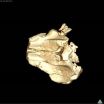(Press-News.org) More than a million people are treated for mild traumatic brain injuries in U.S. hospitals and emergency rooms each year. Yet few receive appropriate psychological and social follow-up care that can make the difference in whether or not they fully recover.
A University of Washington researcher has found that a 20-minute conversation with a social worker has the potential to significantly reduce the functional decline of those diagnosed with a mild traumatic brain injury.
The research is published in the April issue of Brain Injury.
Megan Moore in the UW's School of Social Work is training social workers in emergency departments to provide education and resources to patients with mild traumatic brain injuries to help them deal with symptoms and the recovery process.
"Social workers are masters-level trained clinicians who are already embedded in emergency room treatment teams," Moore said. "The goal of my work is to provide them with specialized training on mild traumatic brain injuries to help bridge the psychological and social aspects of treatment with medical care."
Traumatic brain injury occurs when the head is hit by an outside force, causing the brain to move rapidly within the skull, altering consciousness and damaging the nervous system. Anyone who experiences a fall, car or bike accident, sports head injury or an assault, may experience a traumatic brain injury, but most are considered mild.
While a serious traumatic brain injury is usually obvious, mild brain injuries are often harder to detect, and can cause unexplained physical, cognitive, behavioral or emotional symptoms. Typical symptoms – nausea, vomiting, dizziness, headache, blurred vision, fatigue and sleep disturbances – are common in many other diagnoses, or resolve quickly, and patients don't always seek medical care.
If a patient does go to the emergency room to be evaluated, he or she may go home thinking they're physically okay, but then continue to have trouble with memory, depression, or completing once-routine tasks. That makes it all the more important that a social worker completes an evaluation while the patient is still in the emergency room, Moore said.
"It's a critical intervention point not only for the patients with mild traumatic brain injuries, but also for patients with other types of medical and psychosocial problems," she said.
Moore joined the UW in the fall of 2012. While conducting her doctoral research at the University of California, Berkeley, she designed a study that is currently running at San Francisco General Hospital, a Level 1 Trauma Center. There, medical staff identify patients with mild traumatic brain injuries and refer them to social workers, who provide education, coping strategies, resources and a brief alcohol intervention screening. Social workers later follow up with a phone call to see how the patient is doing.
Moore's initial study showed that an intervention lasting less than 20 minutes significantly reduced brain injury patients' alcohol use and prevented functional decline. (A second, randomized trial is now under way.)
Moore said social workers already conduct evaluations and provide resources for patients in hospitals and emergency rooms, and would need only a small amount of training on recognizing and dealing with mild traumatic brain injuries. They could provide patients with education about symptoms and the recovery process, as well as coping strategies such as getting enough rest and avoiding alcohol and drugs (which increase the risk of re-injury). Social workers also link patients to support groups, counselors, substance abuse services and appropriate medical care.
Moore is especially concerned with thousands of soldiers returning from the battlefield with such brain injuries. The Defense and Veterans Brain Injury Center estimated that more than 220,000 U.S. service members were diagnosed with traumatic brain injuries between 2000 and the third quarter of 2011; 77 percent were considered mild. Such cases may not be detected or treated immediately because of more serious battlefield injuries taking precedence, and once the patients return home they may not report to a hospital for follow-up care.
"Soldiers are coming back with different issues than civilian populations that are injured in a car accident," Moore said. "Social workers definitely need to know the unique issues of soldiers coming back from the battlefield."
INFORMATION:
Moore can be reached at mm99@uw.edu or 206-616-2862.
Moore's research is funded in part by the Institute of Translational Health Sciences at the UW, NIH grant KL2 TR000421-06.
Social workers can help patients recover from mild traumatic brain injuries
2014-05-06
ELSE PRESS RELEASES FROM THIS DATE:
Study shows that impulsivity is risk factor for food addiction
2014-05-06
(Boston) – Have you ever said to yourself that you would only have a handful of potato chips from the bag then, minutes later, realized you ate the whole thing? A recent study shows that this type of impulsive behavior might not be easily controlled – and could be a risk factor in the development of food addiction and eating disorders as a result of cellular activities in the part of the brain involved with reward.
The research, published online in Neuropsychopharmacology, was led by Boston University School of Medicine (BUSM) and conducted in collaboration with the University ...
Linking vascular inflammation to obesity and atherosclerosis
2014-05-06
A study in The Journal of Experimental Medicine shows that IκB kinase β (IKKβ) functions in smooth muscle cells to regulate vascular inflammatory responses and atherosclerosis development.
Inflammatory responses are the driving force of atherosclerosis, a process that involves the hardening and thickening of artery walls due to excess fatty deposits. IKKβ is a central coordinator of inflammatory responses that has been implicated in vascular diseases, but its role in atherosclerosis has been unclear.
Now, Changcheng Zhou and colleagues from the ...
Staying on task in the automated cockpit
2014-05-06
Automation in the cockpit is traditionally believed to free pilots' attention from mundane flight tasks and allow them to focus on the big picture or prepare for any unexpected events during flight. However, a new study published in Human Factors indicates that pilots may have a hard time concentrating on the automated systems that now carry out many of the tasks once completed by humans.
"The automated systems in today's cockpits assume many of the tasks formerly performed by human pilots and do it with impressive reliability," says Stephen Casner, coauthor of "Thoughts ...
Graphene for real-world devices
2014-05-06
Graphene, a one-atom-thick form of the carbon material graphite, has been hailed as a wonder material — strong, light, nearly transparent, and an excellent conductor of electricity and heat. But a number of practical challenges must be overcome before it can emerge as a replacement for silicon and other materials in microprocessors and next-generation energy devices.
One particular challenge concerns the question of how graphene sheets can be used in real devices.
"When you fabricate devices using graphene, you have to support the graphene on a substrate and doing ...
Cedars-Sinai researchers identify how heart stem cells orchestrate regeneration
2014-05-06
LOS ANGELES (EMBARGOED UNTIL NOON ET ON MAY 6, 2014) – Investigators at the Cedars-Sinai Heart Institute – whose previous research showed that cardiac stem cell therapy reduces scarring and regenerates healthy tissue after a heart attack in humans – have identified components of those stem cells responsible for the beneficial effects.
In a series of laboratory and lab animal studies, Heart Institute researchers found that exosomes, tiny membrane-enclosed "bubbles" involved in cell-to-cell communication, convey messages that reduce cell death, promote growth of new heart ...
Redescription of the oldest-known dolphin skull sheds light on their origins and evolution
2014-05-06
VIDEO:
This is the CT image of the skull of the holotype of Eodelphis kabatensis.
Click here for more information.
Dolphins are the most diverse family of living marine mammals and include species such as the bottlenose dolphin and the killer whale. However, their early evolution and fossil record has been steeped in mystery due to lack of good specimens. A new paper published in latest issue of the Journal of Vertebrate Paleontology re-describes the oldest species of dolphin ...
One step closer to cell reprogramming
2014-05-06
In 2012, John B. Gurdon and Shinya Yamakana were awarded the Nobel Prize in medicine for discovering that adult cells can be reprogrammed into pluripotent ones (iPS); the cells obtained are capable of behaving in a similar way to embryonic stem cells, and hence have enormous potential for regenerative medicine.
However, although there are many research groups around the world studying this process, it is still not completely understood, it is not totally efficient, and it is not safe enough to be used as the basis for a new cell therapy.
Now, researchers at the Centre ...
Can you tell a person's gender by their video game avatar?
2014-05-06
This news release is available in French.
Montreal, May 6, 2014 — A sexy wood elf with pointy ears. A hulking ogre with blue skin. An intimidating heroine with a buxom breastplate. When it comes to computer games, players can choose to be anyone or anything. But gamers don't always mask their true identities with online avatars.
According to a new study by researchers at Concordia University, Colorado State University, Syracuse University, Hofstra University and the University of Toronto, a male gamer who chooses to play as a female character will still display ...
The Red Sea -- an ocean like all others, after all
2014-05-06
Pacific, Atlantic and Indian Ocean, with the land masses of the Americas, Europe, Asia, Africa and Australia in between – that's how we know our earth. From a geologist's point of view, however, this is only a snapshot. Over the course of the earth's history, many different continents have formed and split again. In between oceans were created, new seafloor was formed and disappeared again: Plate tectonics is the generic term for these processes.
The Red Sea, where currently the Arabian Peninsula separates from Africa, is one of the few places on earth where the splitting ...
Protein molecule may improve survival in deadly lung disease
2014-05-06
Researchers at the University of Illinois at Chicago College of Medicine have discovered a protein molecule that seems to slow the progression of pulmonary fibrosis, a progressive lung disease that is often fatal three to five years after diagnosis.
The finding is reported in the American Journal of Respiratory and Critical Care Medicine.
Nearly five million people worldwide are affected by pulmonary fibrosis, which causes the lungs to become covered in fibrous scar tissue and leads to shortness of breath that gets more severe as the disease progresses.
Chronic inflammatory ...



